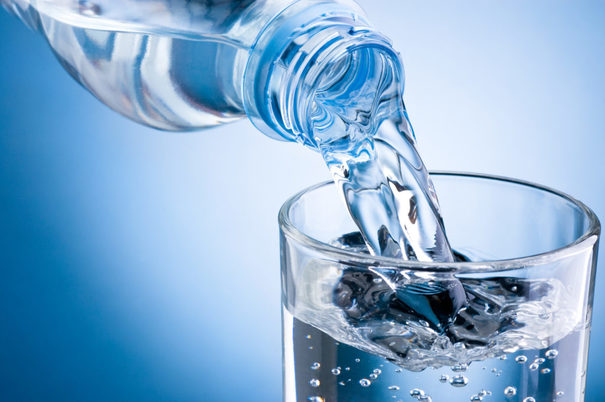by Karin Ruiz
Do you remember that dive, when you were enjoying a smooth descent looking forward to 40+ minutes of awe-inspiring weightlessness and wondrous discoveries when, all of a sudden, your mouth felt like the Sahara desert and you wished you had not refused that drink of water on the boat.
Water is important. You need to continuously stay hydrated for a number of reasons. Amongst other vital functions water is essential for digesting food. Water helps to regulate and maintain our body temperature. It helps to cushion and shock-proof our joints and helps maintain proper metabolism in our body. But most importantly to us divers, Water, present in blood, is the carrier of oxygen and nutrients to all our body cell and getting rid of various toxic elements (such as Nitrogen) from the body.
You lose water through a lot of channels. You sweat (yes, even under water), you belong to the kind of diver that pees in their wetsuit rather than lying about it and you exhale moisture. The air in scuba tanks is drier than the normal air you breathe. That means that when exhaling on SCUBA, you lose more moisture than on the surface.
Losing moisture increases the risk of becoming dehydrated. Dehydration is a serious condition which affects all bodily systems. If there is a reduced level of water in the blood, your muscle cells will not receive the full amount of blood flow they need for proper functioning. That triggers a decreased capability of the body to absorb and release nitrogen. Remember?
During SCUBA diving you store nitrogen in all those nooks and crannies of your body. When ascending you are releasing nitrogen slowly. Ideally, you get rid of most of the nitrogen by the time you surface. Now, that annoying dehydration enters the equation. This means you have to slow down your ascend to a rate lesser than 30ft. per minute to give the nitrogen a chance to exit your body.
Pfew – sounds complicated, but it’s actually quite simple. Less water – more nitrogen – more time needed to get back up.
It is generally a good thing to stay hydrated, not only when diving, but also when you’re coming back from that great trip and going back to your pesky day job. But during a trip there’s really no excuse to not keep up with your H2O intake. Most dive operators have water on board their boats, so that you can enjoy your dives refreshed and hydrated. Make use of it and keep diving safely.
Do you remember that dive, when you were enjoying a smooth descent looking forward to 40+ minutes of awe-inspiring weightlessness and wondrous discoveries when, all of a sudden, your mouth felt like the Sahara desert and you wished you had not refused that drink of water on the boat.
Water is important. You need to continuously stay hydrated for a number of reasons. Amongst other vital functions water is essential for digesting food. Water helps to regulate and maintain our body temperature. It helps to cushion and shock-proof our joints and helps maintain proper metabolism in our body. But most importantly to us divers, Water, present in blood, is the carrier of oxygen and nutrients to all our body cell and getting rid of various toxic elements (such as Nitrogen) from the body.
You lose water through a lot of channels. You sweat (yes, even under water), you belong to the kind of diver that pees in their wetsuit rather than lying about it and you exhale moisture. The air in scuba tanks is drier than the normal air you breathe. That means that when exhaling on SCUBA, you lose more moisture than on the surface.
Losing moisture increases the risk of becoming dehydrated. Dehydration is a serious condition which affects all bodily systems. If there is a reduced level of water in the blood, your muscle cells will not receive the full amount of blood flow they need for proper functioning. That triggers a decreased capability of the body to absorb and release nitrogen. Remember?
During SCUBA diving you store nitrogen in all those nooks and crannies of your body. When ascending you are releasing nitrogen slowly. Ideally, you get rid of most of the nitrogen by the time you surface. Now, that annoying dehydration enters the equation. This means you have to slow down your ascend to a rate lesser than 30ft. per minute to give the nitrogen a chance to exit your body.
Pfew – sounds complicated, but it’s actually quite simple. Less water – more nitrogen – more time needed to get back up.
It is generally a good thing to stay hydrated, not only when diving, but also when you’re coming back from that great trip and going back to your pesky day job. But during a trip there’s really no excuse to not keep up with your H2O intake. Most dive operators have water on board their boats, so that you can enjoy your dives refreshed and hydrated. Make use of it and keep diving safely.

 RSS Feed
RSS Feed
